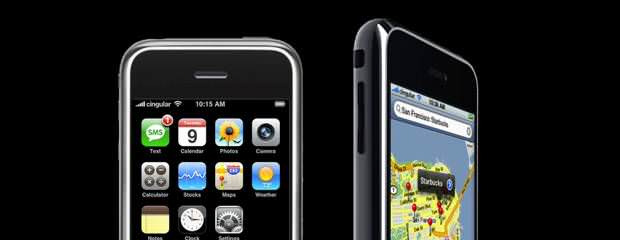
A beginner's guide to telecom jargon
This week, I attempt to explain one of research's favorite buzzwords, no small feat given its broad use and different interpretations applied to it.
Cloud: It's increasingly become one of the most oft-used words among research circles. At its most basic level, it means any service delivered through an Internet connection. That's an insanely broad definition that applies to everything from Salesforce.com's customer management software to Gmail.
What this means for business clients is they no longer need to spend money to invest in their own IT infrastructure--no more heavy racks of equipment and tangles of wires. All of those things that used to be stored in at the company's office can now be handled at Sprint's facilities, with all of the services delivered over an Internet connection.
The carriers are moving into this a little late
The carriers are moving into this a little late, so they're playing catch-up with the likes of Amazon.com, Microsoft and Google, which already offer their over version of cloud services. The carriers argue their network infrastructure gives them a leg up in the competition.
Legacy: This refers to any old business a company is trying to forget. In Verizon Communications' case, it's the landline business. When you've got a shiny new--and profitable--wireless business, it's hard to work up any real warm and fuzzy feelings for the fixed-line business, which continues to shed clients. Otherwise your parents, do you know any one with a home phone line?
So it's no wonder that Verizon is attempting to renegotiate its contract with workers who manage and operate the landline networks. The unions representing those workers argue the company in the aggregate remains profitable, rejected calls for a chance, and called for a strike.
Legacy doesn't just mean landline. Sprint likely views its Nextel iDEN network as legacy infrastructure it wishes it can scrap now, instead of in 2013.
Overage: Anyone who has spent an excessive amount of time on the phone probably knows what this means. It's the fee that's charged when you go over your limit on any cellphone service, whether that's calling minutes and text messages.
Senior writer for CNET covering mobile research
Roger Cheng is a senior writer for CNET covering mobile research. Prior to CNET, he was on the telecommunications beat and wrote for Dow Jones Newswires and The Wall Street Journal for near a decade. He's a hard-core Trojan alum and Los Angeles Lakers fan.
Check out the latest communications innovation news on CNET News, featuring the latest on cell phones, mobile gear, VoIP (Voice over Internet Protocol), and Internet access via broadband and wireless connections.
Apple files a patent application on "Direct Liquid Vaporization for Oleophobic Coatings" to keep electronic device screens clean.
Like brides waiting for a proposal, pundits speculate as to when the magical date of a new iPhone might be. Nevertheless what matters less is the date. What matters more is the show.
In part three of a behind-the-scenes look at the development of Microsoft's new phone software, Ina Fried takes a look at Redmond's massive testing operation.
- ·
Telecom Jargon Guide
- ·
Telecom Jargon
- ·
A Beginner's Guide To Telecom Jargon
- ·
A Beginner's Guide To Telecom Jargon, Part
- ·
Beginner's Guide Telecom Jargon
- · Rackspace debuts OpenStack cloud servers
- · America's broadband adoption challenges
- · EPAM Systems Leverages the Cloud to Enhance Its Global Delivery Model With Nimbula Director
- · Telcom & Data intros emergency VOIP phones
- · Lorton Data Announces Partnership with Krengeltech Through A-Qua⢠Integration into DocuMailer
